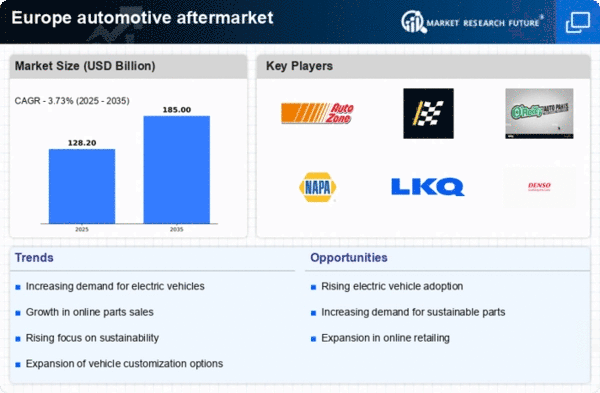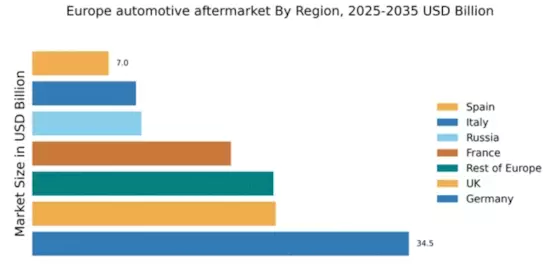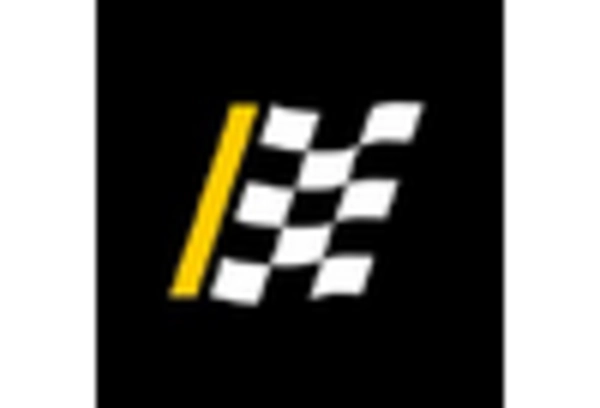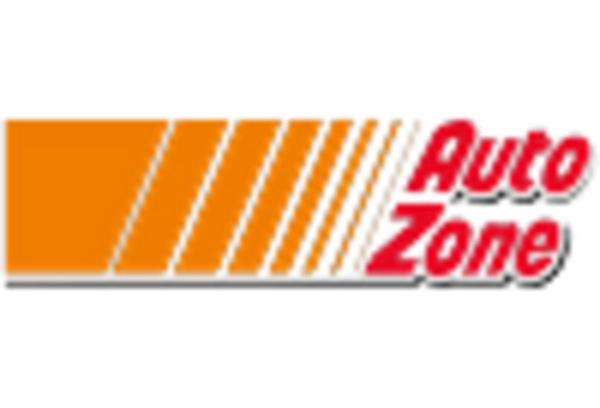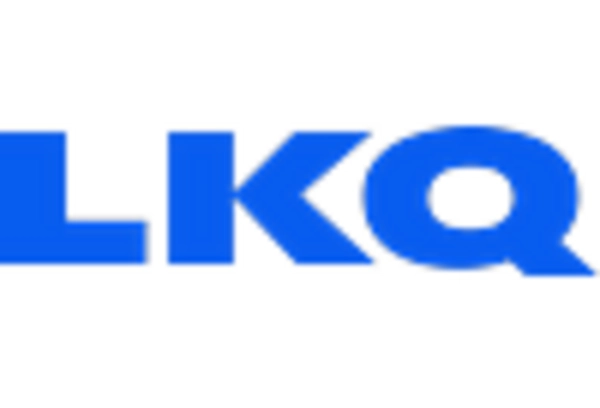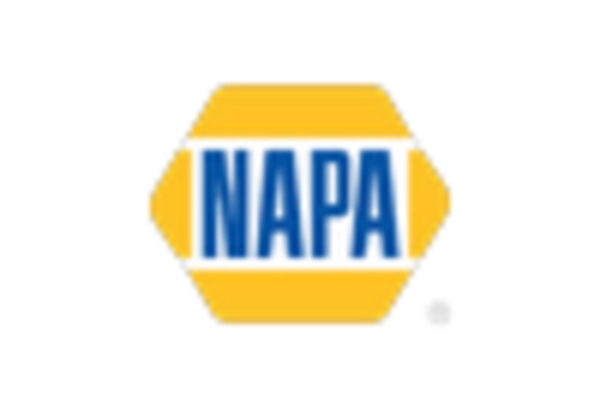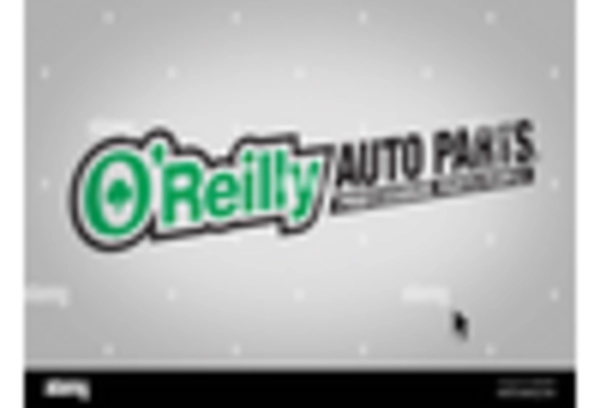Increasing Vehicle Age
The average age of vehicles on the road in Europe continues to rise, which appears to be a significant driver for the automotive aftermarket market. As vehicles age, the demand for replacement parts, maintenance services, and upgrades increases. In 2025, the average age of cars in Europe is estimated to be around 11 years, leading to a growing need for aftermarket services. This trend suggests that consumers are likely to invest in maintaining older vehicles rather than purchasing new ones, thereby boosting the aftermarket sector. Additionally, older vehicles often require specialized parts that may not be readily available from original equipment manufacturers, further enhancing the role of the automotive aftermarket market in providing these essential components.
Growth of Online Retailing
The rise of e-commerce is reshaping the automotive aftermarket market in Europe. Consumers increasingly prefer to purchase automotive parts and accessories online, driven by convenience and competitive pricing. In 2025, online sales in the aftermarket sector are expected to account for approximately 25% of total sales, reflecting a shift in consumer behavior. This trend indicates that traditional brick-and-mortar retailers must adapt to the digital landscape to remain competitive. The growth of online platforms allows for a wider selection of products and often better pricing, which could lead to increased consumer spending in the aftermarket sector. As a result, businesses that embrace online retailing may find new opportunities for growth.
Regulatory Changes and Compliance
Regulatory changes in Europe are influencing the automotive aftermarket market significantly. Stricter emissions regulations and safety standards compel vehicle owners to ensure their vehicles comply with the latest requirements. This situation creates a demand for aftermarket parts that meet these standards, as well as services that can help vehicles pass inspections. In 2025, it is anticipated that compliance-related services will account for a notable share of the aftermarket market, potentially reaching 15% of total service revenues. As regulations evolve, the automotive aftermarket market must adapt, providing compliant products and services to meet the needs of consumers and regulatory bodies alike.
Technological Advancements in Automotive Repair
The automotive aftermarket market is experiencing a surge in technological advancements that enhance repair and maintenance services. Innovations such as advanced diagnostic tools, telematics, and mobile applications are transforming how services are delivered. For instance, the integration of artificial intelligence in diagnostics can reduce repair times and improve accuracy, which is crucial for customer satisfaction. In 2025, it is projected that the adoption of such technologies could increase efficiency in service delivery by up to 30%. This shift not only benefits service providers but also encourages consumers to seek aftermarket services, as they become more aware of the capabilities and benefits of modern repair technologies.
Rising Consumer Awareness of Vehicle Maintenance
There is a growing awareness among consumers in Europe regarding the importance of regular vehicle maintenance, which is driving the automotive aftermarket market. Educational campaigns and increased access to information about vehicle care have led consumers to prioritize maintenance to enhance vehicle longevity and performance. In 2025, surveys indicate that approximately 60% of vehicle owners are more proactive about maintenance than in previous years. This trend suggests that consumers are likely to invest more in aftermarket services and products, as they recognize the long-term benefits of proper vehicle upkeep. Consequently, this heightened awareness is expected to contribute positively to the growth of the automotive aftermarket market.


